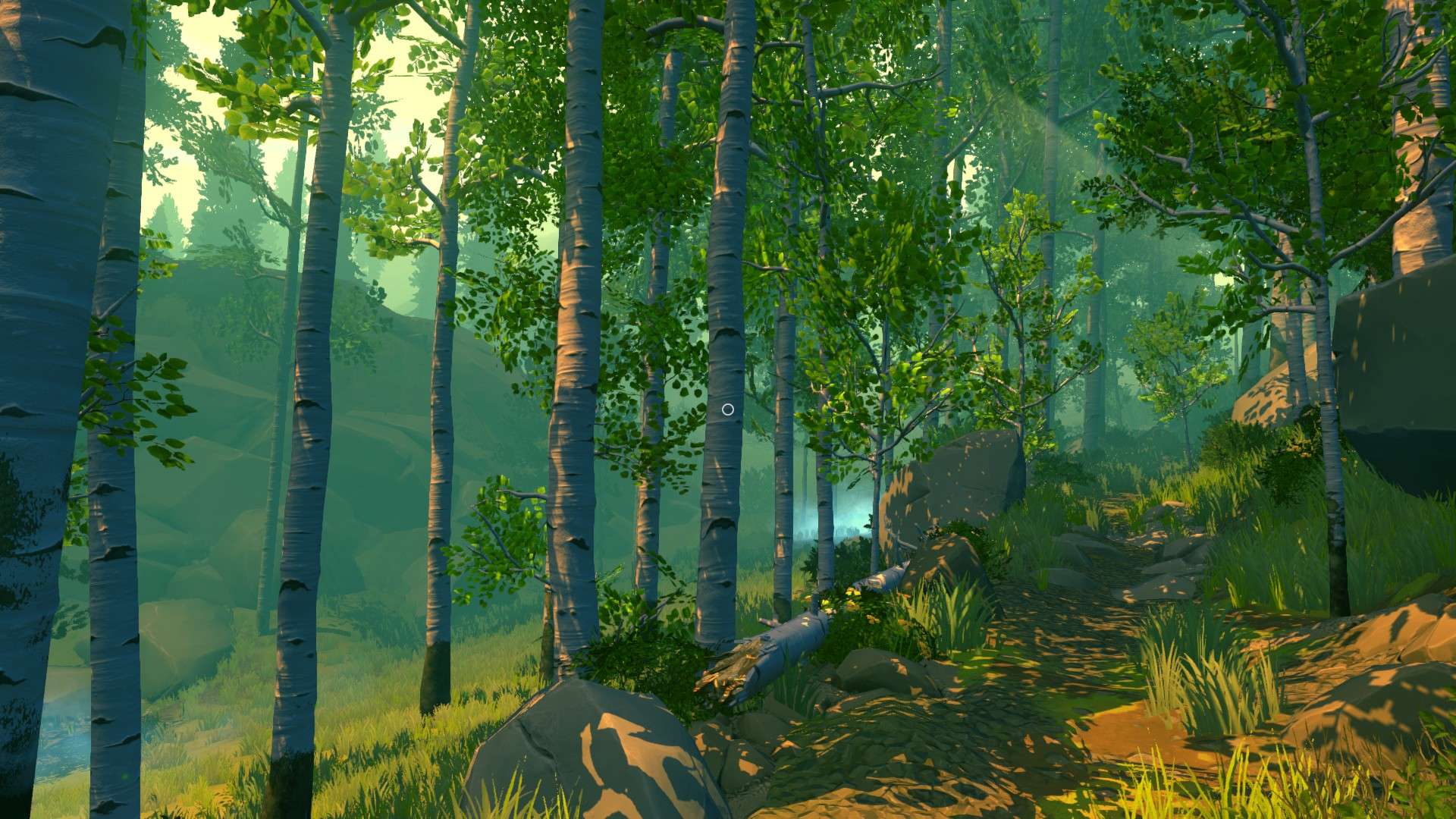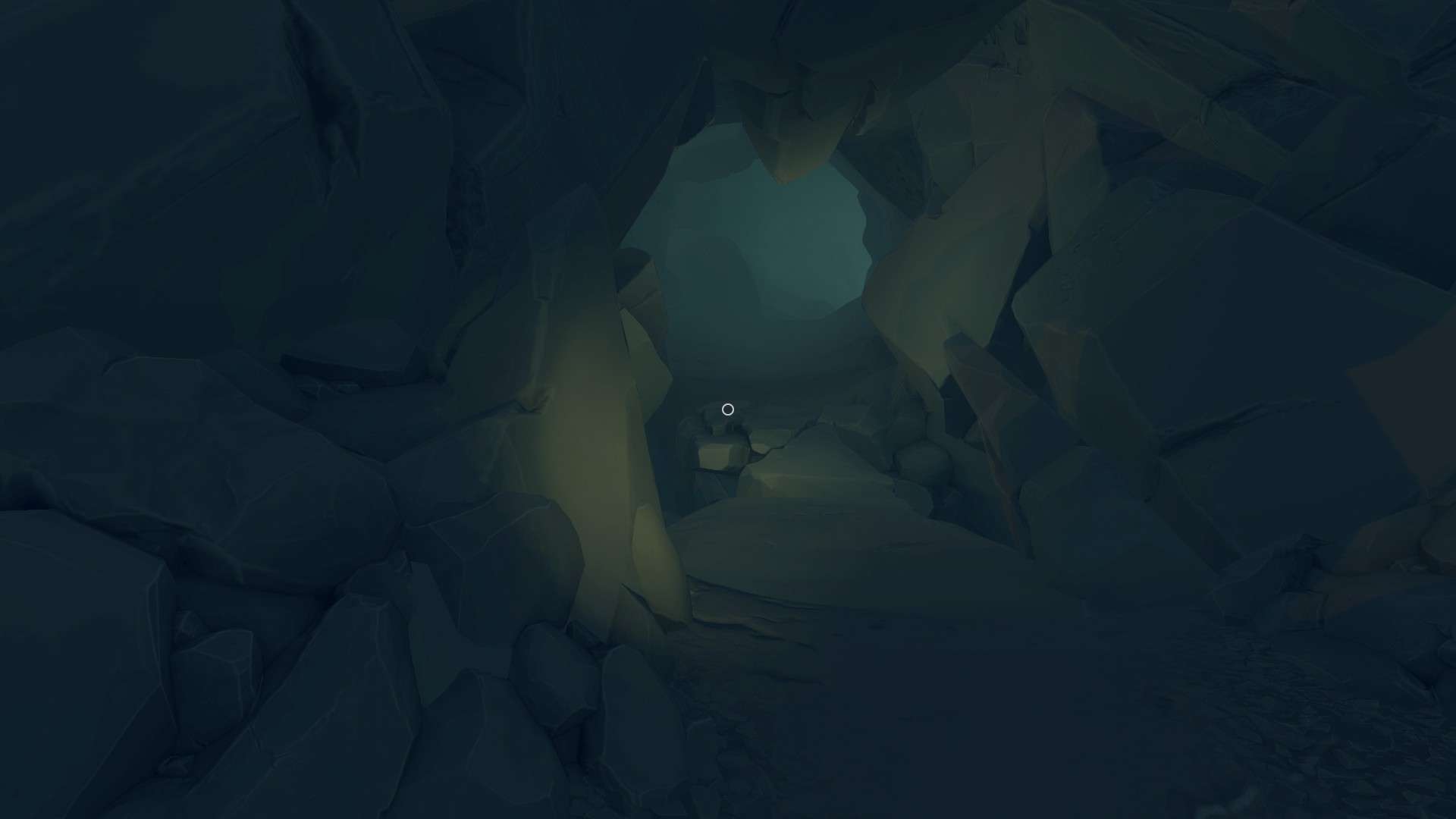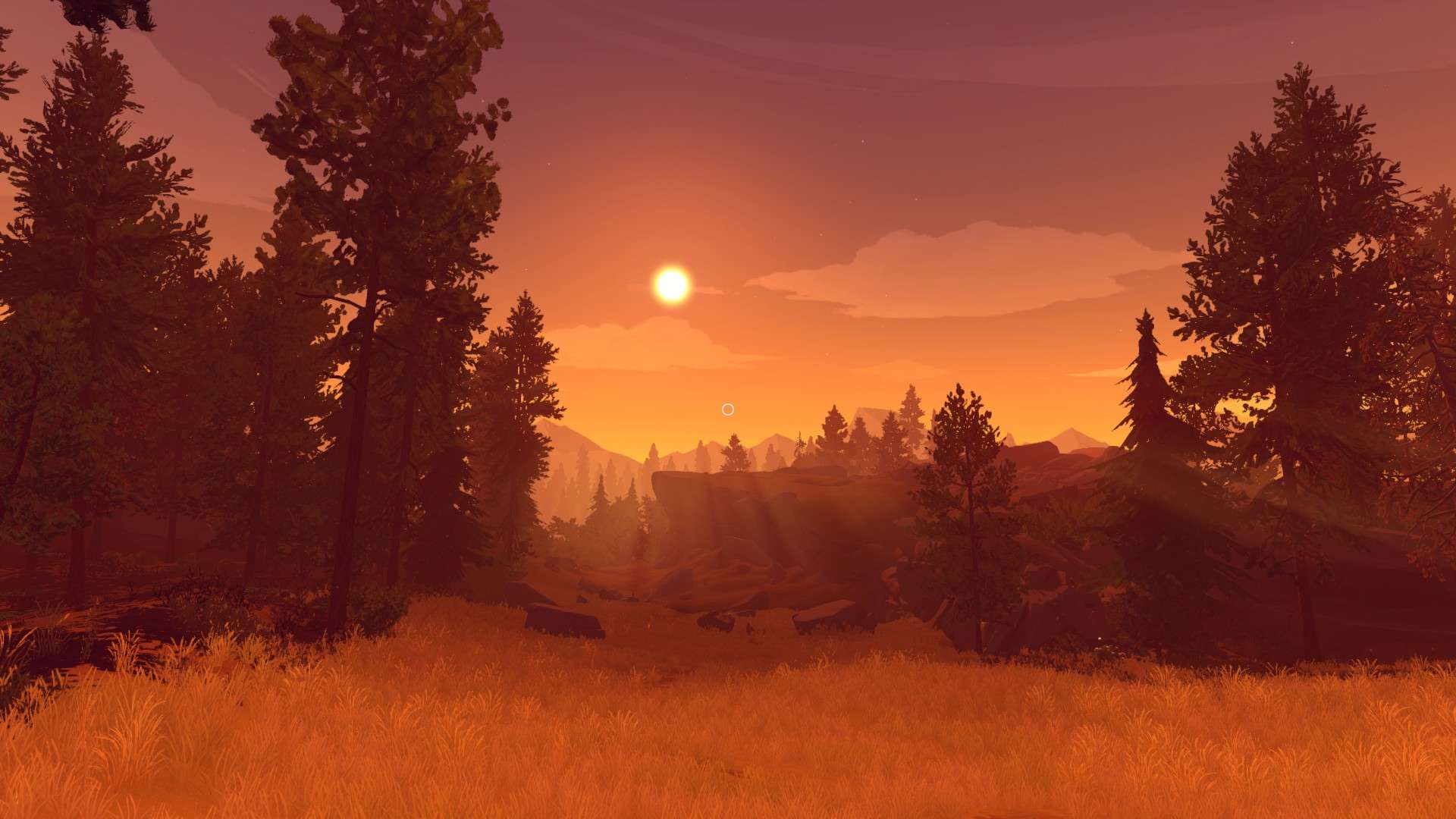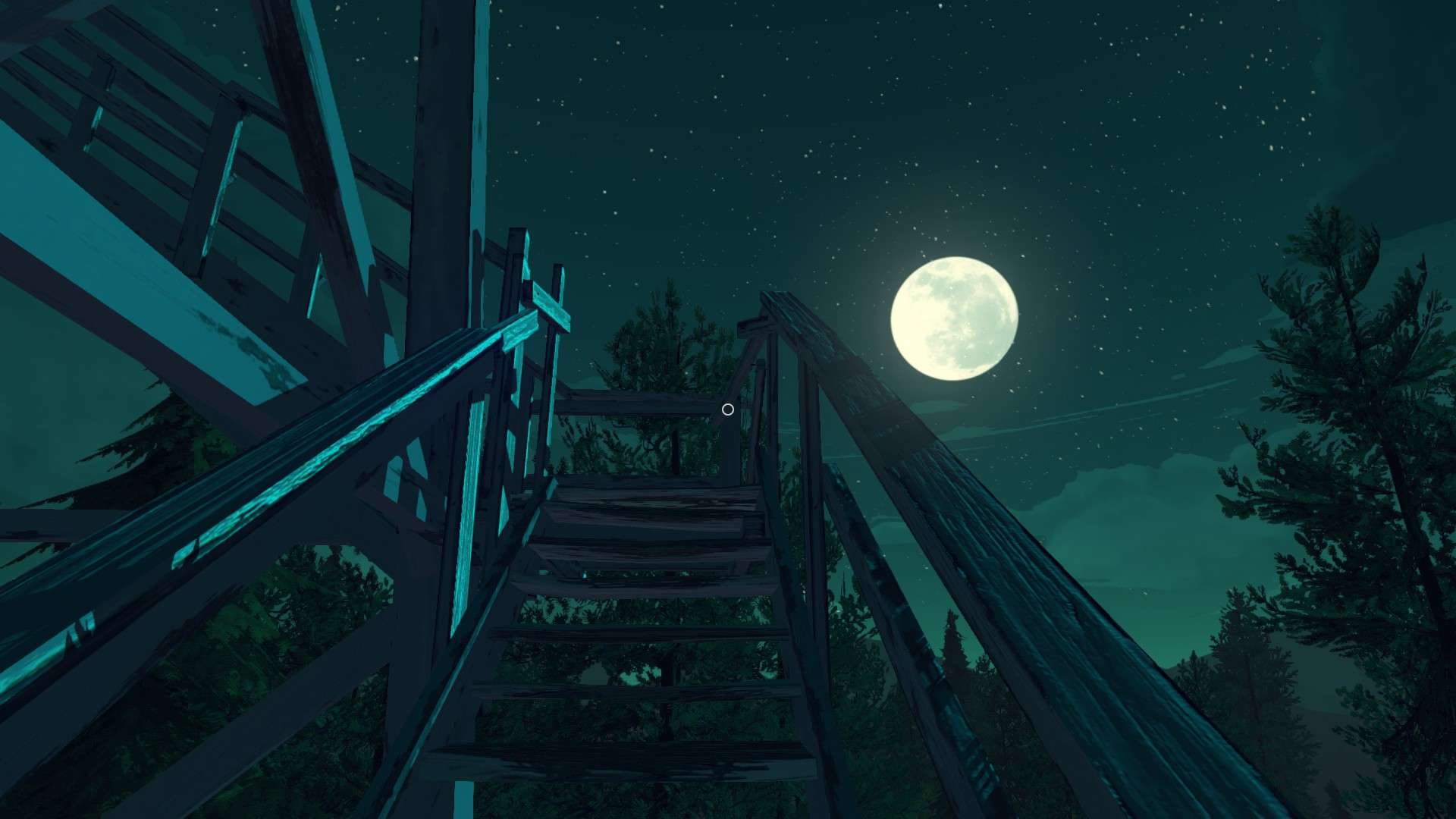
Firewatch PC Review
It turns out that Firewatch isn’t quite as difficult to describe as a certain E3 podcast appearance from its creators would have you believe. I can sympathise with being want for shorthands and easily applicable monikers that don’t just sound reductive, but in essence Firewatch is a walking simulator. Specifically, it feels like outdoors Gone Home.
You play Henry, who’s decided to escape civilization for a while and is just starting his summer-long job as a firewatch. Your superior is a lady named Delilah, and you receive instructions from her via radio. The degree to which you interact with Delilah is often up to you, since you can choose to “report” nearly everything you see to her, and your time in Firewatch can become a more or less solitary experience because of it. Your conversations with her offer branching responses, and your choices inform the characteristics of your relationship. The development of the rapport between the two becomes the heart of the game.
Your work responsibilities as a firewatch are stated quite clearly – sit in your watchtower and watch for fires, and investigate any suspicious activity. This is done with pretty specific directions from the game, but you’re equipped simply with a compass and map, and making your way to a location is up to you. It quickly turns out that not all is as serene as it seems, and what’s meant as an escape from a tumultuous life becomes a bit of an adventure in its own right.

And I know what you’re probably thinking ever since I said walking simulator. “Ew!” Either “Ew! I want to kill guys! Take me to the reviews of games where you kill guys!”, in which case you may randomly pick any review from our archive and you’re statistically pretty safe. Or you’re thinking “Ew! ‘Walking simulator’ is such a belittling term that we need to stop using!”, in which case… Sure. That’s a fair point – but for now it’s descriptive enough.
Much of Firewatch seems designed to directly adress concerns about walking simulators, however, without undermining what is good about them in the first place; being delivery mechanisms for a contextually told story. For starters you have a run button that takes you places significantly faster, and the game doles out little abilities that make the act of getting around more varied than simply pushing in a direction. You’ll fasten ropes on posts to rappel down cliffsides, you’ll cut trees and bushes down to progress, and there’s the odd key and locked door. You’ll have moments when you come upon a particular obstacle that you can’t tackle yet, only to come back later with a new tool. It doesn’t get too crazy or video gamey, but rather than having the game world be a carpet rolled out in front of you as you move along, it’s one big physical space you travel across, back and forth, and thus strengthening your sense of place.

But while you definitely do some gamey things in this game, they are kept firmly contextual. You can’t jump unless you’re in front of a thing to jump onto, and you’re not attaching ropes to any old thing, willy nilly. The gameplay doesn’t veer into mechanics, it’s simply dressing up very basic traversal with interactions. It achieves the intended result, however; it grounds you in the world, and makes it feel tangible. Between these things, the openness of the world and the way you correspond with Delilah, Firewatch becomes something impressively seamless and convincing.
And it opens particularly strong in this regard. I went into Firewatch essentially blind. I had seen some brief gameplay in some E3 demo at some point, but it wasn’t clear just how dynamic the game would be. Could things happen that weren’t scripted to happen? The slow realisation that I was very much governed by a story did make the initial rush wane a bit, but at that point I was becoming invested in the story instead. Similarly to Gone Home, exploring, being thorough and paying attention lets you uncover more about the situation, past and present, and what is actually dynamic about Firewatch is how inquisitive you want to be and the choices you make.

Clearly, a lot of effort has gone into figuring out and executing Firewatch as well as Campo Santo have managed here, and I’m almost afraid that I’ll come off as judging the result too harshly. I would like to applaud it for all its victories. Not only is it jaw droppingly beautiful, there is also something dream like and surreal about it. Not in an unnatural way, but exploring a wide open space like that, and experiencing that kind of solitude, gives you a peculiar feeling. The writing is great, and the interplay between Henry and Delilah is natural and utterly believable. Their first interactions are convincingly stilted and standoff-ish, and the way they eventually warm to one another is infectious. Some of the later conversations tug at your heartstrings by virtue of simply feeling… real.
As much as I admire that, the main crux is that I wasn’t very fulfilled by Firewatch. It’s not that I’m not susceptible to a story told in this format – on the contrary, what kept my interest for the duration was how the story was delivered. But its shadow boxing with video gamey elements didn’t amount to anything substantial, and when everything else ends up hinging on the story on offer, the resulting experience sadly feels less than essential. It’s a singular journey that leaves you feeling things and then lingers in your mind, and if you like the idea of Gone Home in a more open environment you should definitely attend. The takeaway from all the successful elements on display here isn’t so much that that Firewatch is amazing – it’s simply that this is what video games can be now. And that’s pretty amazing.

The benefit of a context driven game that adheres more to adventure game rules than to those of your standard gameplay loop driven action romps, is that you feel like anything could happen. You go into this story not knowing for sure what sort of interaction you can expect, and that is very potent. More than its closest sibling, Gone Home, Firewatch feels modular – like you could attach any style of interaction to it, and it could become anything. This is probably what sets it up to fall, a little bit, because it doesn’t get up to very much at all – you’re left inevitably thinking about the possibilities, and to a degree having to settle for what is there.
So, the opening to Firewatch may be a little too strong for the game’s own good, then – and as you slowly realise the confines of your role in the game world, it’s not without a little disappointment. Nevertheless, it’s still a journey you should consider going on – one of human and flawed characters, compelling mystery, and sobering, bitter sweet realisations.
